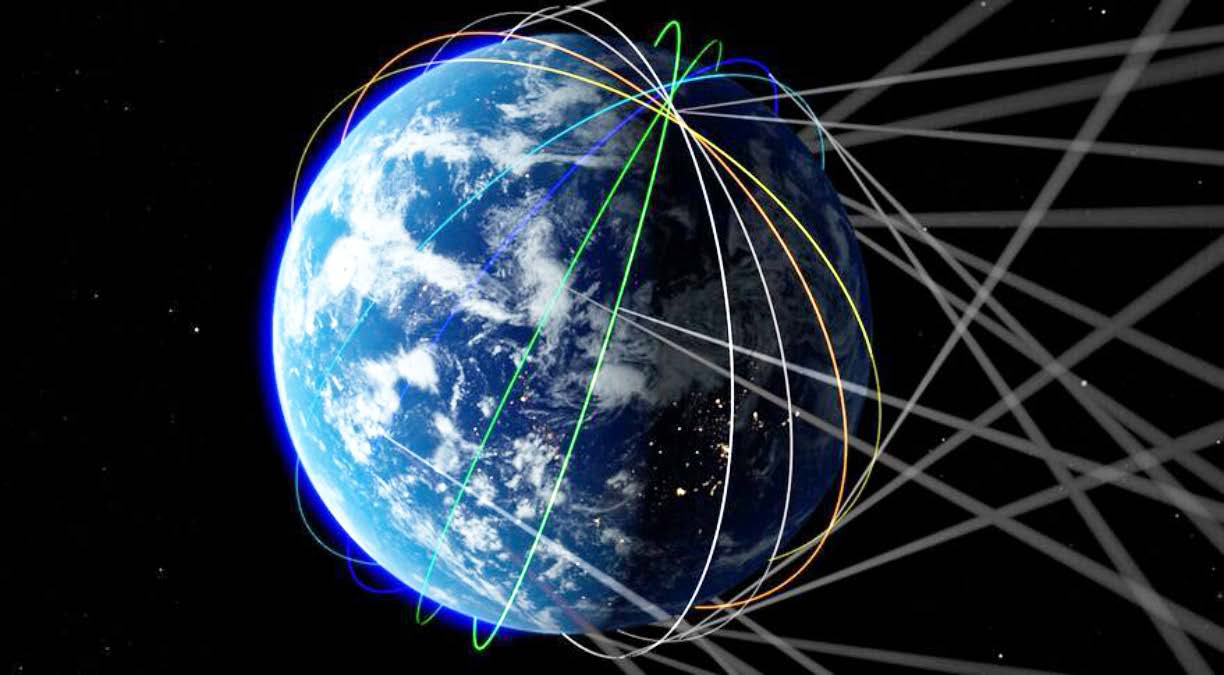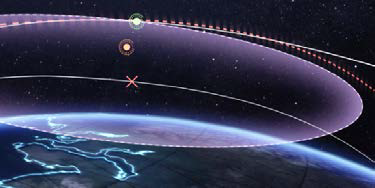In July of 1969, the world’s eyes were riveted to television screens to watch in awe as a human stepped carefully down a short ladder to put the first footprint on the moon.

Artistic rendition of NorthStar’s satellites scanning orbits from multiple perspectives to identify and track objects.
This historic event inspired a generation that now leads the development of a rapidly expanding space industry, delivering critical infrastructure to our global economy, communications, and the monitoring of our planet to assess the impact of climate change.
Today, we face a new and predictable challenge in space: to manage our expanding footprint on this once pristine environment to ensure it remains accessible for generations to come. One element has not changed: space concerns us all and demands cooperation and innovation from around the world.
Our voracious appetite to exploit the space environment must be tempered with the correct tools to ensure safe operations and protect the hundreds of billions of dollars of assets that serve our everyday needs and sustain our quality of life.
While governments and institutions have played the dominant role in the exploration of space and expansion of overall space activity, commercial endeavors now lead the way in accelerating and diversifying such ventures. This presents a challenge to address the rapid increase in resident space objects (RSOs) and ensure safe and secure operations in an increasingly congested environment.
Rapid change demands innovation and adaptable strategies, both characteristics typical ofncommercial enterprise.

Artistic rendition of the probability of a collission between
two orbiting objects.
In this new paradigm, as commercial endeavors lead the expansion of services from space, industry must also set a precedent for responsible and sustainable behaviour in space. This may take the form of an ESG (Environment and Social Governance) protocol that bridges responsible business practices and profitability.
An essential tool to address this challenge is precise and timely knowledge of the orbits of all RSOs to increase awareness and facilitate safe navigation Such tools will enable operators to better manage their fleet of satellites, reduce unnecessary maneuvers and optimize the lifetime of valuable space assets.
In other words, sustainability is good business, and the technology exists within commercial enterprise to deliver this value.
Apart from critical research dollars to fund innovation, what is the role of government? Only governments can create national and set international standards, regulate access and use of space, and provide essential political and legal infrastructure.
In the US, the National Space Policy, Space Policy Directive – (June 3, 2018), extended through the US space priorities framework, laid the policy foundation to meet the public need for high performance navigation systems in space and to open the door for commercial enterprise to fill the order. Resolving safe navigation is just the start of our future economy in space.
Accurate detection and measurement of RSOs, edge processing, commercial space stations to enhance the delivery of space-based services, and the limitless frontier of application developments all contribute to the “big data” play that will bring endless opportunities for us to continue realizing our dreams in space for generations to come.

Stewart Bain
Stewart Bain is an innovator, entrepreneur, aerospace engineer, international business expert and the driving force in the development of NorthStar, the world’s first comprehensive Earth & Space
information services platform. Stewart was part of the original engineering design team for RadarSat 1 and 2, and created the optical systems centre of excellence at CAL Corporation, which commercially developed breakthrough star tracker systems for spacecraft attitude control and optical intersatellite link technologies. Stewart holds masters degrees in engineering and
business administration. He is a trained classical actor who founded the Ottawa Shakespeare Festival. And most importantly, he is the father of six children. Stewart’s energies are devoted to realizing NorthStar as an enterprise to help create a more sustainable world, for his own children, for their generation and for generations to follow.
northstar-data.com

